Monthly Journal
September 2023
International Press Review
The most relevant events of the area through international sources
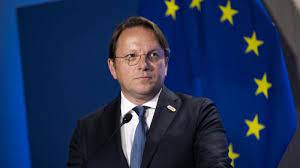
The EU will table a “substantial proposal” for enlargement in October
Euractiv
Enlarging the EU to the Balkans by 2030 is feasible, but it requires increased efforts from both candidate countries and the EU itself, said Enlargement Commissioner Oliver Varhelyi in September. Varhelyi revealed that the European Commission plans to present significant proposals in this sense in October. European Council President Charles Michel’s recent suggestion of enlargement by 2030 was welcomed by Varhelyi, who emphasised that it’s a matter of political will and delivery rather than specific dates. Varhelyi stressed the need for all parties, including EU institutions, member states, and candidate countries, to intensify their efforts to make this goal achievable.
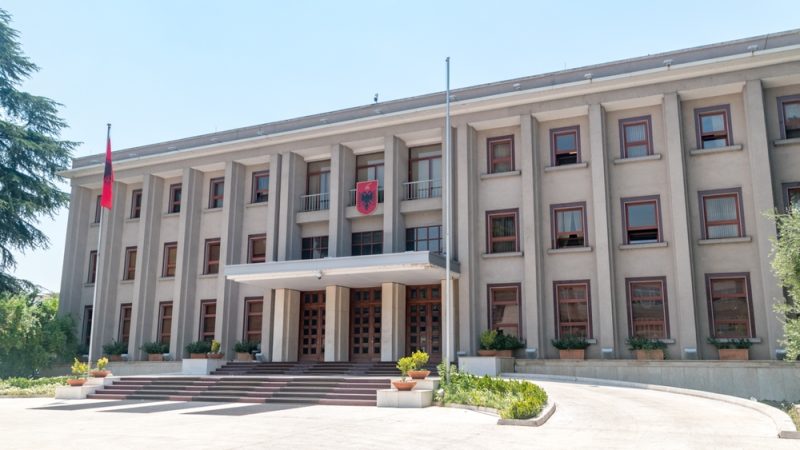
PM Rama reshuffles Albanian government
Seenews
Albanian Prime Minister Edi Rama has announced a cabinet reshuffle aimed at realigning the government’s priorities, by strengthening the justice system and transforming Albania into a high-end tourist destination, Rama claimed. The reshuffle includes changes in key ministries such as Finance, EU integration, Agriculture, Health, and Enterprise. Additionally, a new ministry for Local Governance will be established. This move is seen as an attempt by PM Rama to restore the government’s image following recent scandals involving several of his political allies, analysts in Tirana said.
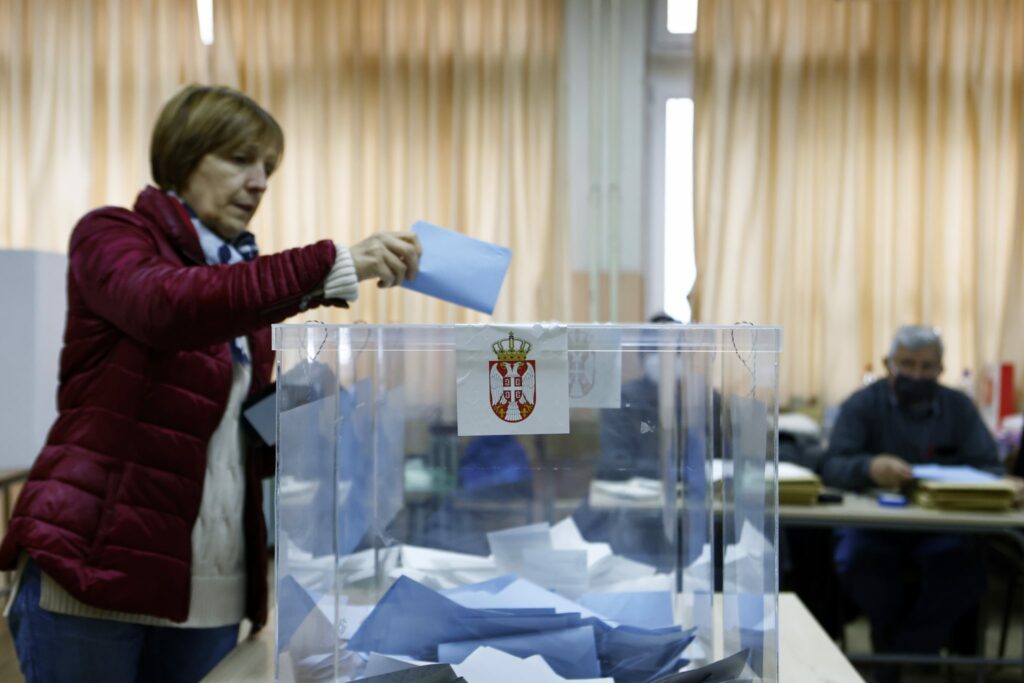
Ruling coalition set to win elections in Serbia
N1
According to a poll by the agency Stata, at the next elections, 44% voters would support the ruling coalition, while 38% would back opposition parties. In terms of party support, the ruling Serbian Progressive Party (SNS) would secure 36,3% of the vote. Additionally, 48% of those surveyed support holding elections in the coming months, while 26% are opposed. Serbia might be heading to early elections at the beginning of 2024.
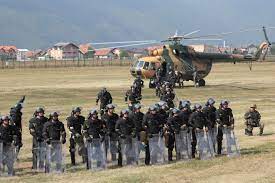
EUFOR launches demonstrative manoeuvres in Bosnia and Herzegovina
Reuters
In response to ongoing political crises in the Balkan country, the peace-keeping mission EUFOR conducted a demonstrative exercise at the Butmir base near Sarajevo as part of its annual exercise ‘Quick Response 2023’. These exercises, which took place in the period 11-19th of September, involved soldiers from 22 EUFOR nations, with reserve forces from their home countries. The goal is to showcase EUFOR’s readiness in case of an escalation of violence and reaffirm its support for maintaining a safe and secure environment in Bosnia and Herzegovina.
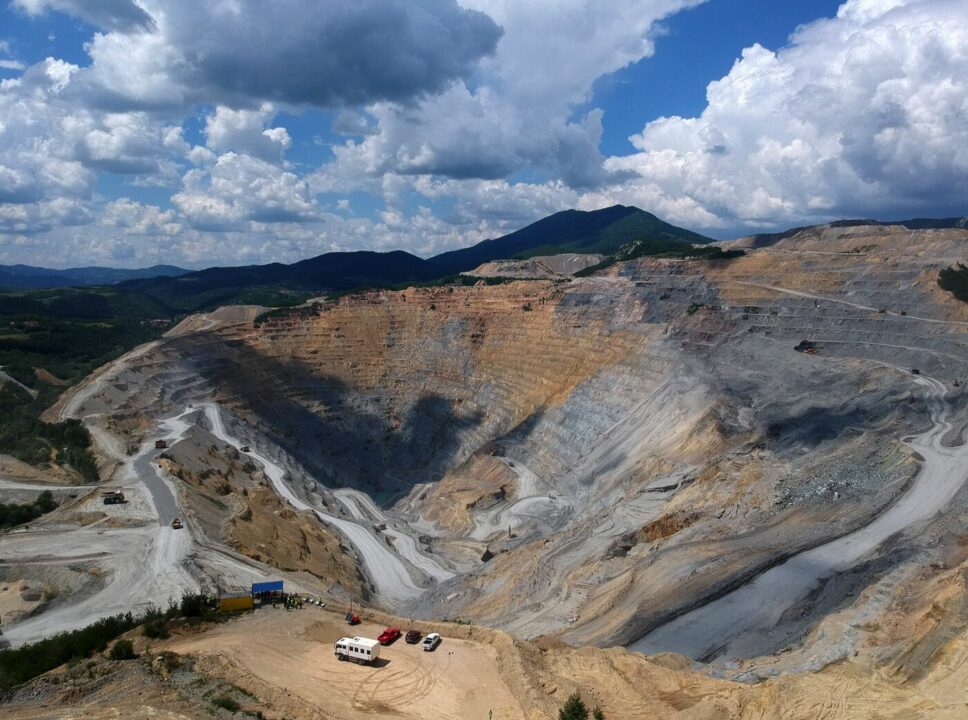
China will invest massively in the Serbian mining sector
Barrons’s
China is planning a substantial investment of more than 3 billion euros in a copper and gold mine located in eastern Serbia. The agreement, formalised through a memorandum of understanding, involves the state-owned Chinese company Zijin Mining. This significant investment comes after Zijin acquired a majority stake in the Bor-based copper and gold mining operation in 2018, following previous unsuccessful privatisation attempts by Belgrade. Copper’s importance in renewable energy and green technologies has led to increased global investments in mining operations on a global level. China has been actively investing billions in Serbia and neighbouring Balkan countries in recent years, aiming to expand its economic and political presence in Europe.

Germany suspends funding of projects in Republika Srpska
N1
The German government has decided to halt funding for four strategic projects in Bosnia’s Republika Srpska (RS) entity due to RS President Milorad Dodik’s secessionist policies. This message was conveyed by the Special Envoy of the German Government for the Western Balkans, Manuel Sarrazin. The decision reflects Germany’s concern over Bosnian Serb leader Milorad Dodik’s secessionist stance and the need to send a firmer signal to the Bosnian Serb leader. While suspending these projects, Berlin emphasised the importance of ensuring the safety of German taxpayers’ investments, Sarrazin noted.
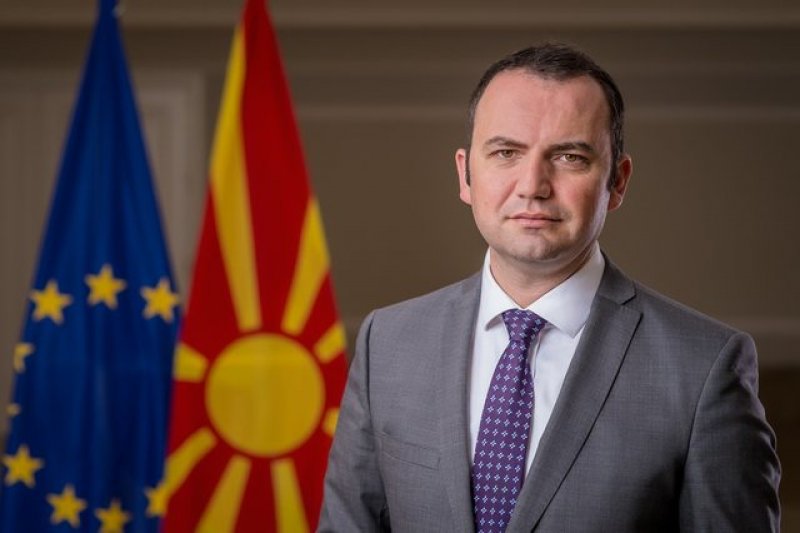
North Macedonia’s FM supports “integration before full membership” concept
Albanian Daily News
The Foreign Minister of North Macedonia, Bujar Osmani, has expressed support for the concept of “integration before membership”, which was recently proposed in Germany by the opposition CDU party and by analysts. This approach would allow candidate countries in the Balkans to gradually experience the advantages of EU integration based on the level of fulfilment of specific criteria, even before becoming full EU members, in particular by joining the EU common market. According to Osmani, the concept offers immediate rewards, reducing citizen frustration and bolstering resistance against external non-EU influences.
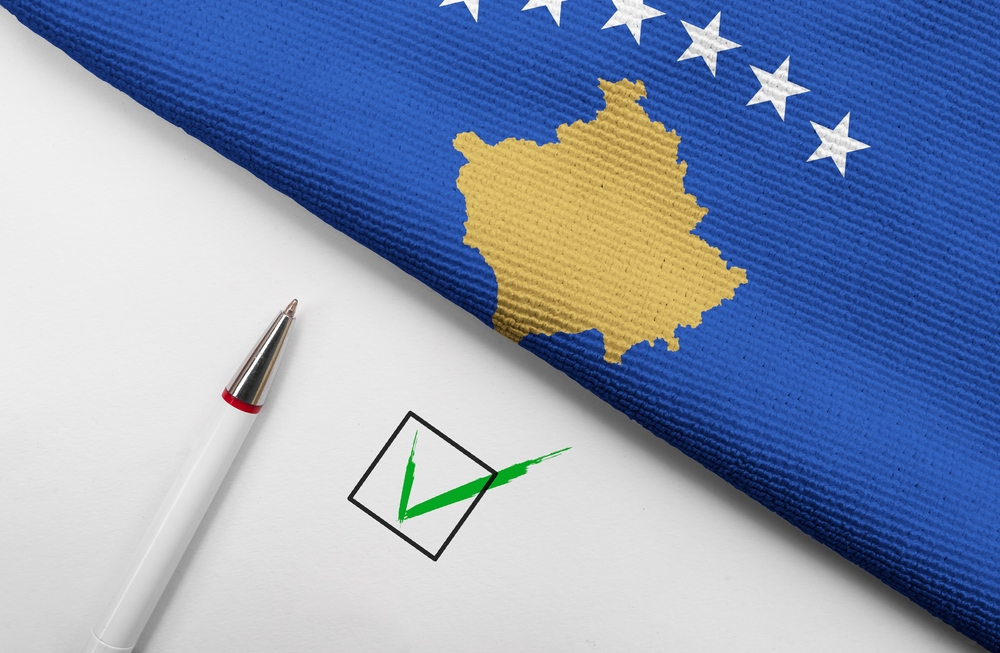
Berlin against Paris on visa threat
Euractiv
French President Emmanuel Macron’s suggestion that Kosovo’s visa-free regime with the EU, set to finally begin on January 1, 2024, might be reviewed if Pristina doesn’t address tensions with Serbia has caused a rift with Germany, the closest European ally of Paris. While France considers a possible delay, Germany intends however to stick to the initial timeline, Berlin suggested. Kosovo has faced EU measures due to tensions in its northern region, mainly inhabited by ethnic Serbs.
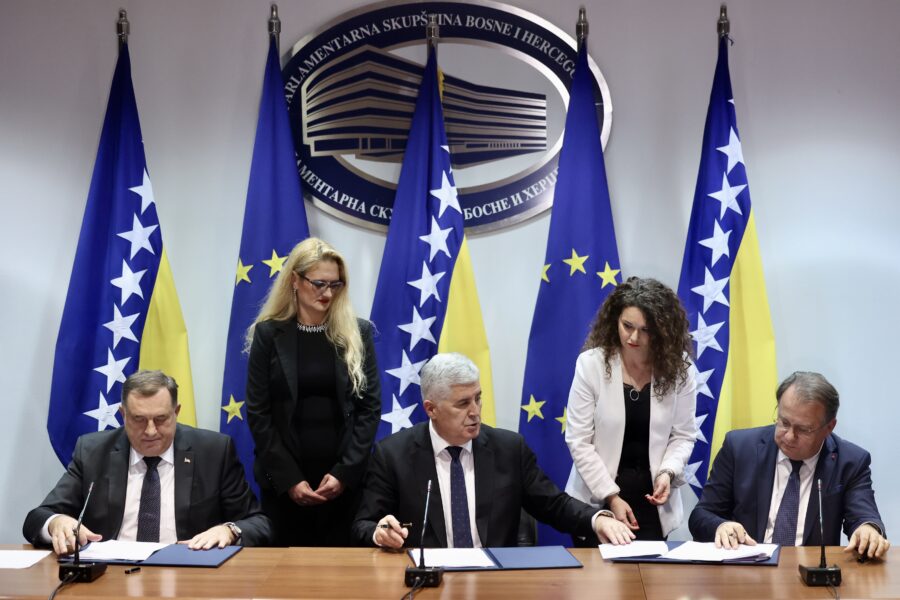
Bosnian leadership unaware of Russian hybrid warfare strategies
N1
Edin Mujkic, an Associate Professor at the University of Colorado in Colorado Springs, warned that Bosnia and Herzegovina’s political elite is not fully aware of the various security challenges, threats and risks facing the country and its citizen due to the active Russian propaganda and hybrid warfare. Mujkic expressed disappointment in pro-Bosnian parties for failing to build state’s institutional capacities. He also cautioned that security threats are becoming more complex and urged political actors in BiH not to rely solely on international assistance but to prioritize sovereignty and the right to exist of the Balkan country.
The Insight Angle

Wouter Zweers
He serves as a research fellow within the EU & Global Affairs Unit at Clingendael, the Netherlands Institute of International Relations, a leading independent think tank on international affairs. His research primarily focuses on the external dimensions of EU policymaking, with a particular emphasis on EU enlargement in the Western Balkans and the Eastern dimension of the European Neighbourhood Policy. Wouter oversees as well the Clingendael’s ‘Balkan Hub’, a project that facilitates collaborative research and events with think tanks from the Western Balkans and holds the position of Secretary for the Russia and Eastern Europe Knowledge Alliance (REKA), a Dutch network comprising experts and practitioners committed to advancing knowledge about Russia and Eastern Europe.
In the Clingendael report titled “Little Substance, Considerable Impact”, it was pointed out that Russia employs various strategies in the Balkans to influence local leaderships. These strategies primarily revolve around three main objectives: maintaining its image as a great power, obstructing the region’s integration into Euro-Atlantic institutions, and advocating for its foreign policy interests in other parts of the world. How effective has Moscow’s deployment of ‘soft power’ in the Balkans been, and have there been any notable changes in this regard following the Russian invasion of Ukraine? Do you expect any changes of the Russian approach in the future?
Russia indeed manages to spread its narratives amongst parts of societies in the Balkans. It is indeed using some sort of ‘soft power’ that we traditionally associate with the EU as a union with values that appeal to many people worldwide. With relatively little effort, Russian soft power has been effective especially in Serbia and Republika Srpska, because local media and politicians amplify such narratives. The idea of Russia as a historical, conservative ally and more practically, its support for Serbia on the Kosovo issue, makes that such narratives resonate well, though of course not with everyone. That has not significantly changed after the Russian invasion of Ukraine. Russia will also in the future seek to portray itself as an ally guarding the interests of the countries in the Balkans.
Considering the protracted and sluggish pace of the EU enlargement process in the Balkans, one might wonder if Europe inadvertently facilitated Moscow’s objectives in the region. Furthermore, if the integration process continues to face delays, could Russia exploit the fact that the Balkans remain distanced from the EU, particularly given the unresolved issue of Kosovo, to further exert its influence?
The slow pace of the EU accession process indeed means that space has remained for Russia to influence the countries through various means. But it has certainly never been the EU’s objective to facilitate Russian influence in the Balkans, and we need to look carefully at the reasons for the slow accession pace, which are partly due to flaws in the EU approach, but also result from a slow pace of reforms and lack of political commitment in some of the countries. Russia will continue to make use of any channels it has to influence the region, and these include political cooperation, energy supplies, and more. So, the objective of the EU should not be to simply rush to accession process, but instead to significantly scale up engagement with the region on sectoral issues such as energy and climate, migration and/or defence and actively reduce dependencies on Russia. Further steps towards full EU integration will depend on political readiness on both sides.
While the influence of Russia is evident in the behaviour of certain influential politicians in the Balkans, such as Milorad Dodik in Bosnia and Herzegovina and Aleksandar Vulin in Serbia, it’s worth noting that more prominent figures like Serbia’s President Aleksandar Vucic appear to have relatively distanced themselves from Moscow. Nevertheless, does Russia still possess some degree of leverage in the region’s politics, and if so, through what means does it exert and will exert this influence?
As we point out in the report, Russia has not developed a sort of EU-style institutionalised relationship with either Serbia, Bosnia and Herzegovina or Montenegro. But instead of pursuing formal bilateral or multilateral ties, it builds relations with individual politicians who show openness to Russia. Dodik and Vulin are indeed the most prominent examples, while Serbian president Vucic seems mostly guided by his own power interests and Serbian national interests as he perceives them. Therefore, he sometimes appeals to the EU, and at other times to Russia. As such, Russia is still influential because of certain dependencies, for example regarding energy, but also because there is a local political ‘demand’ for its influence. In my view, one of the main problems with the EU approach is that it is tolerating such balancing. After the Russian invasion of Ukraine, the EU has become somewhat more critical, but not as much as it should be.
The Balkans continue to suffer from a high level of energy dependence on Russia, with a slow progress in diversifying energy sources. Is there a risk that Russia could exploit this situation in the near future to maintain its sway over the countries in the region? How can the EU contribute to addressing this energy security challenge in the Balkans?
Specifically on energy, there are two challenges. First, for Bosnia and Herzegovina and Serbia, Russia constitutes almost the sole provider of gas. Even if gas only makes up a fraction of the total energy mix, this still creates a strong dependency. Second, and equally problematic, Russian state-owned companies own large parts of energy infrastructure in both countries. Some steps towards energy diversification have been announced already, and the EU can contribute to that, e.g., through European Bank for Reconstruction and Development (EBRD) support for energy infrastructure projects to create connections with other countries. Second, Serbia, Bosnia and Herzegovina, and Montenegro, as well as the other countries in the region, have committed themselves to the Green Agenda for the Western Balkans, which basically engages them with the EU’s internal Green Deal. By cooperating with the region, the EU can work on its own climate ambitions and decreasing geopolitical dependencies at the same time.
The Key Story
Strategic trends
Crisis in Kosovo reaches unprecedented levels
with deadly armed clashes
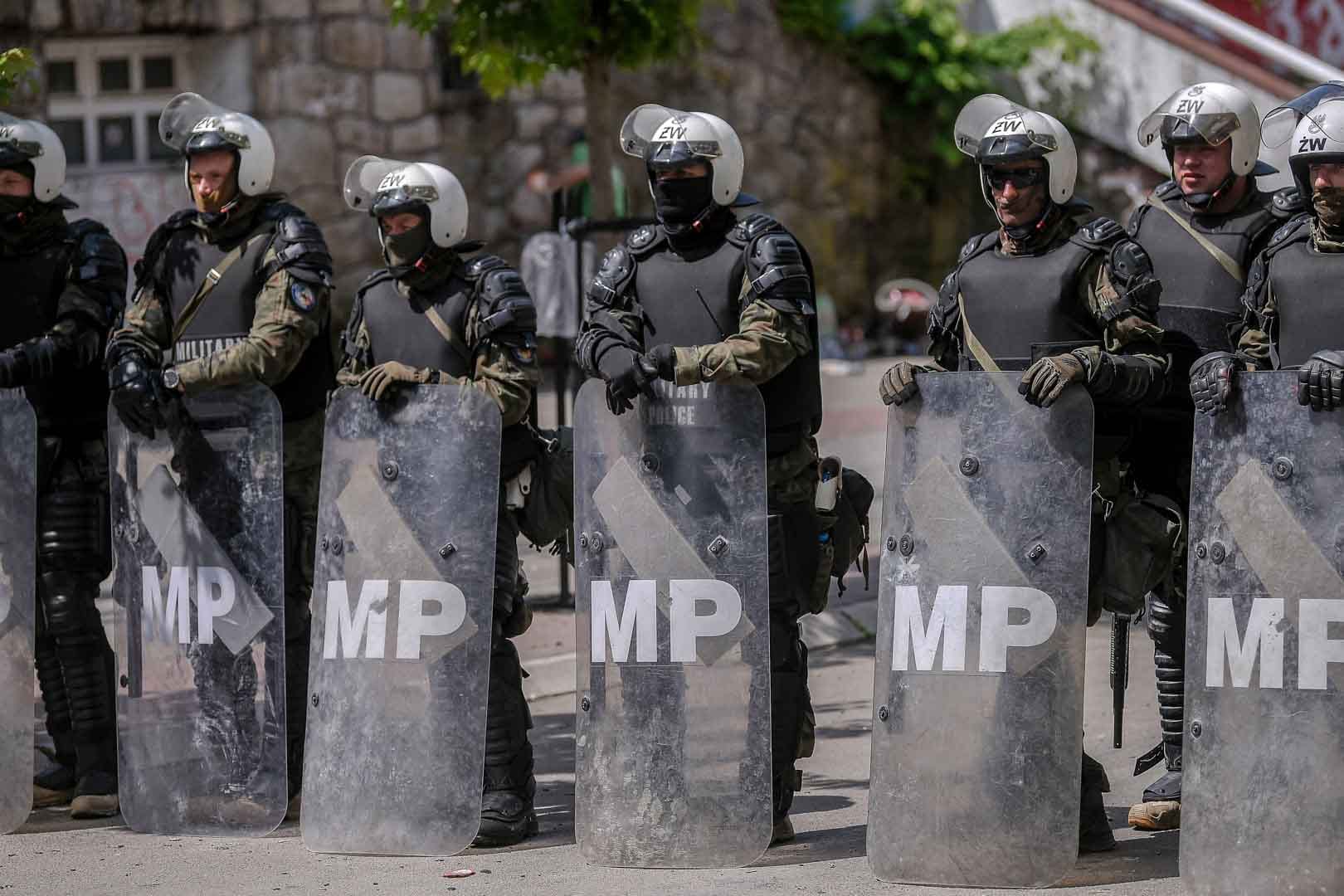
A violent confrontation between an unidentified group of masked ethnic Serb gunmen and the Kosovo police in the volatile northern region of Kosovo, mostly inhabited by Serbs, has once again underscored the precariousness of the situation in the area. Furthermore, it has highlighted the potential for a localised conflict in the region and the urgent need of a concrete dialogue between Belgrade and Pristina to finally normalise their relation.
The most recent crisis erupted on the 23rd and 24th of September, when a Kosovo police patrol came under ambush near the village of Banjska, in the northern region of Kosovo. A group of unidentified Kosovo Serbs, in an action that apparently surprised both Belgrade, Pristina and surely the majority of the local Serb population, placed trucks on a bridge near the village, shooting at the approaching police. Tragically, one Kosovo law enforcement officer lost his life in the attack, while another sustained serious injury.
Following the initial attack, the perpetrators forcibly entered the nearby Banjska Orthodox monastery (commune of Zvecan) and barricaded themselves inside. This led to a prolonged exchange of gunfire with Kosovo police, resulting in at least four of the attackers being fatally shot during and after the siege. Kosovo’s authorities reported that around 30 heavily armed gunmen were surrounded by law enforcement within the religious complex. It remains undeclared how the remaining individuals from the group managed to escape. Negotiations might have played a role in preventing further casualties.
The tense standoff between the gunmen and Kosovo authorities at the monastery, located near the Serbian border, finally ended on Sunday night, as Pristina authorities confirmed that they regained control of the area “after several successive skirmishes”, Xhelal Svecla, Kosovo’s Minister of Internal Affairs, informed.
The “terrorist attack” (a misleading denomination for what is actually a subversive operation, note of the Editor) against the Kosovo police was widely condemned by the EU and the United States, while the Kremlin warned that the situation in Kosovo is “potentially dangerous.”
The ambush and the ensuing firefight stand as one of the most significant escalations in Kosovo in recent years, following the violent disorders of the 26th of May when unknown gunmen shot at KFOR soldiers involved in antiriot tasks. This development follows months of rising tensions and stalled negotiations between Kosovo and Serbia.
Kosovo’s Prime Minister Albin Kurti’s labelled the ambush as an act of terrorism and squarely pointed the finger at Serbia, suggesting that the mysterious armed group had clear links with Belgrade. Kurti stated that “organized crime, with political, financial, and logistical support from officials in Belgrade, is launching attacks on our country.” “This is the reason why we have been calling for Serbia to stop sponsoring terrorist attacks in the north,” Kurti added. “Terrorists can’t break us, they only strengthen our resolve,” Kosovo’s President Vjosa Osmani said. Previously, Osmani claimed that Serbia is hiddenly arming radical groups in Kosovo, in order to destabilise Kosovo.
Serbia’s President, Aleksandar Vucic, condemned also the killing of the police officer but firmly laid the blame on Kurti for what he perceived as the mistreatment of Kosovo’s ethnic Serbs. The Serbian leader claimed that Belgrade held no direct responsibility for the incident, instead characterizing it as a spontaneous act of rebellion against Pristina, which has refused to establish an Association of Serb Municipalities in northern Kosovo. Furthermore, Vucic accused Kurti of persistently hassling Serbs in Kosovo and expressed regret that some Serbs had “responded” to these provocations.
New information emerged indicating that Milan Radoicic, a polarizing entrepreneur and the Vice President of the Srpska Lista party in Kosovo, was identified as the leader of the paramilitary group. Radoicic, represented by his legal counsel, confessed the responsibility for the operation, asserting that he acted independently of Belgrade in an effort to secure the freedom of Kosovo Serbs from what he referred to as the “occupation” by Albanians in the North.
The attack occurred just over a week after leaders from Serbia and Kosovo engaged in talks aimed at improving their relation. Unfortunately, the discussions, mediated by the EU in Brussels, did not yield a significant breakthrough once again. While Brussels initially thought it had made progress by devising a plan to normalise relations in the spring, subsequent developments have shown limited advancement in this regard. And, as the most recent violent incident highlights, the situation in the northern region has the potential to erupt at any moment, possibly spiralling into uncontrolled violence and ushering in a new and perilous phase of destabilisation at the heart of the Balkans.
Confirming the seriousness of the situation, the US said is closely watching a Serbia’s military buildup near Kosovo’s border and urged Belgrade to withdraw its forces and cooperate in investigating the attack in the Banjska village. National Security Advisor John Kirby stated this at the White House, noting the presence of modern artillery, tanks and mechanized infantry units in the Serbian deployment along the border. Kirby expressed concern about the destabilizing nature of this development and mentioned the absence of specific intelligence regarding its purpose.
Further News and Views
Dodik indicted, threatens to arrest High Representative
Sources: AFP, Associated Press, N1
Tensions have once again flared up in Bosnia and Herzegovina, after Bosnian Serb leader Milorad Dodik was confirmed to face indictment for refusing to acknowledge decisions made by international High Representative Christian Schmidt and the Constitutional Court. These charges, approved in August and endorsed by the country’s highest judicial authority, have paved the way for his upcoming trial. In the event of a guilty verdict, Dodik could potentially serve a sentence ranging from six months to five years. Dodik, a staunch advocate of the secession of his entity, Republika Srpska, and a Kremlin-aligned Bosnian politician, has already made it clear that he will not comply with the court’s ruling, even if convicted, suggesting that imprisonment is not a concern.
Adding to the growing tensions, Dodik issued a threat to apprehend and deport Christian Schmidt, the top international official responsible for overseeing peace in Bosnia, should Schmidt venture into the Serb-controlled regions of the country. Dodik contests Schmidt’s legitimacy in this role, claiming that his appointment lacked legal validity. Dodik has outlined intention to enact a decree facilitating the “arrest and deportation” of Schmidt if he attempts to enter Republika Srpska. The Bosnian Serbs leader warned that if Schmidt comes for a meeting in Republika Srpska, he would be forcibly removed, and if he transits through the territory, an “escort” would ensure his swift departure.
Apparently, in this way Dodik retracted to the threat, but the ongoing conflict with Schmidt, nonetheless, poses a substantial risk of further destabilizing the region.
Romania discovers new debris from Russian drones
Sources: Radio Free Europe, AP, The Guardian, Ukrainska Pravda
Romania has reported the discover of new debris from drones with a Russian design on its territory, marking the third such alert in the NATO country in September. These fragments resemble those employed by the Russian military and were found following a Russian attack on nearby Ukrainian ports, used to transport grain. The Romanian Defence Minister confirmed the presence of drone parts likely originating from Russia’s recent attacks on Ukrainian ports within Romanian borders. Preliminary analysis of the first two drone fragments indicates that they did not explode in Romania and were not carrying explosives.
This discovery of drone fragments on Romanian soil raised concerns about the conflict between Russia and Ukraine potentially affecting neighbouring countries. Flight restrictions in the northern Dobrogea region, along the border with Ukraine, have been expanded and now cover a 20 to 30-kilometer-wide area and extend up to an altitude of 4.000 meters, with US fighter jets employed in air-policing the area.
Romanian President Klaus Iohannis stated that Russia doesn’t directly target Romania. However, he expressed concern about the fragments of Russian drones landing in the EU and NATO country, considering it a significant problem. Additionally, Iohannis classified Russian attacks on small Ukrainian ports on Danube as potential “war crimes.”
EU - NATO
‘Balkan-six’ push for EU integration by 2030
Sources: ABC News, ANSA, Tanjug
The heads of state from six Western Balkan nations aspiring to join the European Union convened in North Macedonia in September, jointly urging the EU to expedite the enlargement process, as this would enhance regional stability. They issued a joint declaration, signed by the presidents of Serbia, Kosovo, Bosnia, Montenegro, North Macedonia, and Albania. The declaration called for both the EU and the Western Balkans to be prepared for enlargement no later than 2030. It underscored the significance of accelerating the Western Balkans’ integration into the EU and emphasized the commitment to strengthening strategic dialogue with EU institutions and implementing regional reforms.
The declaration, adopted unanimously, also stressed the necessity of addressing the implications of climate change and taking measures to create resilient societies that retain their youth in the region. Moreover, it highlighted the urgency for these six countries to join the EU, particularly in light of ongoing Russian aggression against Ukraine and its potential spillover effects in the region.
The meeting in Skopje saw the participation of Serbian President Aleksandar Vucic, Montenegro’s Jakov Milatovic, Kosovo’s Vjosa Osmani, Albania’s Bajram Begaj, North Macedonia’s Stevo Pendarovski, and Zeljko Komsic, currently the Chairman of the Tripartite Presidency of Bosnia and Herzegovina.
ECONOMICS
Eastern Europe looks to nuclear energy to reduce dependence from Russia
Sources: Euronews, The European Conservative
Europe is grappling with the aftermath of the energy crisis triggered by the Ukraine conflict, and countries like Romania, Czechia, and Poland are increasingly focusing on the small modular nuclear technology (SMRs) to reduce in the future their reliance on Russian fossil fuels. The Three Seas Initiative (3SI) Summit in Bucharest discussed SMR technology, and the US-led Project Phoenix is supporting coal-to-SMR feasibility studies in Poland, the Czech Republic, and Slovakia. Romania is set to build the first SMR in Europe with US backing. Slovenia is also exploring nuclear energy options, with potential interest from US and South Korean companies. Serbia has expressed interest in nuclear energy, but no concrete steps have been taken yet. John Kerry, the US climate envoy, visited Bucharest during the 3SI to discuss American financial backing for new nuclear power technology in Poland and Romania. This move is part of the US strategy to strengthen its influence in Central and Eastern Europe as the region reduces its reliance on Russian hydrocarbons. SMRs are smaller and more flexible than traditional reactors, and a much cheaper option.

Stefano Giantin
Journalist based in the Balkans since 2005, he covers Central- and Eastern Europe for a wide range of media outlets, including the Italian national news agency ANSA, and the dailies La Stampa and Il Piccolo.

